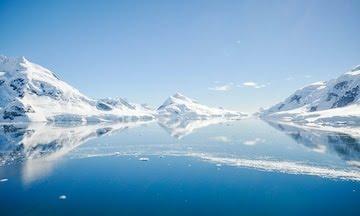
Arctic could see first ice-free summer day a decade earlier than expected: study
text_fieldsNew research suggests that the Arctic may witness summer days with virtually no ice a decade earlier than previously projected, regardless of emissions scenarios.
The study, published in the journal Nature Reviews Earth & Environment, challenges prior estimates that focused on when the region would be ice-free for a month or more. The research team from the University of Colorado Boulder projected the Arctic Ocean could become ice-free for the first time on a late August or early September day between the 2020s and the 2030s.
While earlier studies suggested the Arctic could have an entire month without floating ice during September by mid-century, the recent findings highlight the potential for ice-free conditions, meaning less than 1 million square kilometers of ice, to occur much sooner.
This threshold is less than 20% of the seasonal minimum ice cover in the 1980s. The Arctic Ocean has recently experienced approximately 3.3 million square kilometers of sea ice area at its minimum in September.
Lead author Alexandra Jahn, associate professor of atmospheric and oceanic sciences at the University of Colorado Boulder, emphasized that this shift would fundamentally transform the Arctic environment.
Even with unavoidable ice-free conditions, efforts to keep emissions low are crucial to preventing prolonged ice-free periods. The researchers analyzed existing literature and climate models, concluding that the first ice-free day could occur four to 18 years earlier than monthly averages.
This potential decline in sea ice has far-reaching consequences for Arctic wildlife, including seals and polar bears, as well as the possible migration of non-native fish as the ocean warms. Additionally, the retreat of sea ice could lead to larger ocean waves, contributing to coastal erosion and posing risks to communities in those regions.
While sea ice can rebound quickly if the atmosphere cools down, the study underscores the urgency of addressing greenhouse gas emissions to mitigate the drastic changes in the Arctic environment.





